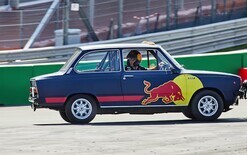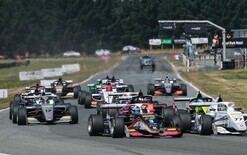TTPA hold-up with car parts
Posted on 03 August, 2015

The latest round of talks on the Trans-Pacific Partnership Agreement (TPPA) concluded in a stalemate last week with dairy, automotive and pharmaceutical issues being cited as sticking points.
Trade Minister Tim Groser told TVNZ’s Q&A programme on August 2 that it’s surprising automotive issues, which he views as bigger than this country being in dispute with Canada over the dairy industry, as still not being resolved.
“We were gobsmacked to find that something so fundamentally important to this negotiation as the auto trade, which dwarfs dairy,” says Groser.
While much of the TTPA’s details are under wraps, it is understood the US and Japan have been trying to agree on the rules of origin for cars. The question relates on when a car, or part of one, comes from outside the trade zone, such as a Japanese vehicle with Thailand-built components. Japan believes excluding such vehicles as Japanese will upset existing supply chains and is also calling on the US to drop duties on Japanese car parts going there.
New Zealand, meanwhile, is hanging out for a better deal on dairy tariffs, but Groser says cars are as much to blame as cows.
“Everybody, including two of the major players in the autos area, were staggered to find out the dimension of the problem on autos,” adds Groser. “This has been concealed for reasons I don’t think are helpful for me to talk about in public because everything is being monitored carefully.
“But we were gobsmacked, would be the word, to find that something so fundamentally important to this negotiation as the auto trade, which dwarfs dairy in magnitude by God knows what – 100? I don’t know what it would be – was not in a clear position to be settled.”
TELEVISION INTERVIEW TRANSCRIPT
Corin Dann’s interview with Tim Groser on TVNZ’s Q&A
DANN: Mr Groser, can you give us a sense of how disappointing this is that you didn’t reach an agreement this week?
GROSER: Well, I have mixed emotions. On the one hand, of course I’m disappointed, but on the other hand I’m relieved that we were able to avoid a situation of New Zealand essentially being thrown out of this negotiation or accepting a completely suboptimal deal on our number one export.
DANN: How much of a risk is it that we’ll be thrown out because we are holding out on decent dairy access?
GROSER: I think it’s a political fantasy to believe New Zealand can be thrown out of this negotiation. But I’ve been trained to think realistically in these matters and there are certainly one or two countries that would come to your funeral – as one of our team put it to me. We would only be taking ourselves out. They’re not going to push us out.
DANN: Can you give us a sense of what we’re trying to get now in terms of dairy? This is the sticking point. What was on the table? I know you can’t give us exact details, but what are we after?
GROSER: There are essentially two sticking points that the general public would be interested in. There are a range of other technical matters that I’m reasonably comfortable with. But the two key sticking points are the deal on autos and the deal on dairy. And I have to say that everybody, including two of the major players in the autos area, were staggered to find out the dimension of the problem on autos. So this has been concealed for reasons I don’t think is helpful for me to talk in public, cos everything is being monitored carefully, by any minister, what they’re saying. But we were gobsmacked, would be the word, to find that something so fundamentally important to this negotiation as the auto trade, which dwarfs dairy in magnitude by God knows what – 100? I don’t know what it would be – was not in a clear position to be settled.
So we’ve got the two key issues now of dairy and autos. We’ve got some issues in pharmaceutical IP, and I know that’s been the centre of the domestic political debate in our country, and I’ve told the Prime Minister I’m extremely comfortable with the direction of travel on that. But those are the two key areas.
DANN: Coming back to dairy, though, what are the chances here? You’ve got to get some big moves from the likes of Japan and the US and Canada. How realistic is that, that you’re going to get that inside the next three weeks or so?
GROSER: It’s not realistic to think that we’re going to get everything we want. We’ve always understood that this is a negotiation. But nor is it realistic to expect New Zealand to accept a completely suboptimal deal. And I don’t know whether people thought we were bluffing or not. You never know until you get to the endgame. But of course, we were never bluffing. And we’ve got to sit there and fight for New Zealand. But let me just say this: on all the rest of the deal, of great interest to exporters, there is a great deal shaping up. So it’s a very complicated equation for us.
DANN: Just finally, Minister, the timeframes here are getting very tight.
GROSER: They’re getting very, very tight.
DANN: If you can’t get something sorted in the next three weeks, are we out of the game here because of the US elections next year?
GROSER: Well, the only honest answer to that is ‘who knows?’ There is no formally agreed timetable. But I’ve been telling the Prime Minister in numerous conversations I’ve been having over the phone with him that there is a very strong shared informal understanding that this has got to be done in weeks, not in months. Whether we get it done in weeks, not months, remains to be seen. And there’s now an additional major complication on the political timetable, because it’s the worst-kept secret in international politics that Stephen Harper has either dropped the writ today or is about to, which means a Canadian election is now underway. And Canada is exposed both on dairy and on autos in a very very intriguing and difficult way.






